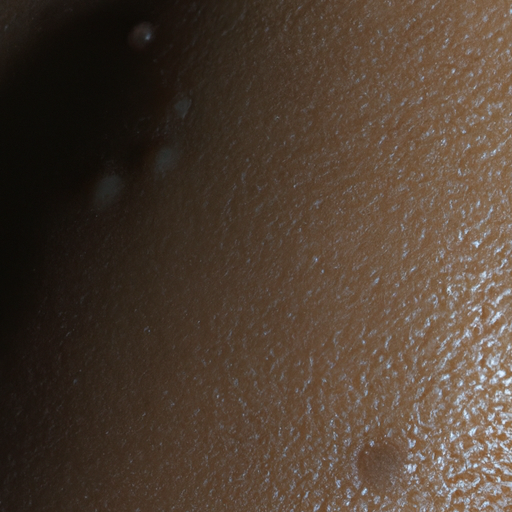As a medical professional, I often encounter patients who are struggling with oily skin. This condition can lead to various skin issues such as acne, blackheads, and enlarged pores. However, with the right care and treatment, one can manage oily skin effectively and restore the skin’s natural radiance. This article aims to unmask the radiance beneath your oily skin and provide you with the ultimate guide to healing it.
Firstly, it’s essential to understand what causes oily skin. The sebaceous glands in our skin produce a natural oil called sebum, which helps protect and hydrate the skin. However, when these glands overproduce sebum, it leads to oily skin. Factors contributing to this overproduction can be hormonal changes, stress, humidity, diet, or genetics.
Now let’s delve into the ways to manage and heal oily skin.
1. Cleansing: The first step in your skincare routine should be cleansing. It is crucial to wash your face twice daily with a gentle, water-soluble cleanser to remove excess oil and dirt without stripping your skin of its natural oils. Avoid using harsh soaps or detergents as they can irritate your skin and trigger more oil production.
2. Toning: After cleansing, use a toner to remove any leftover residue. Choose an alcohol-free toner with ingredients like witch hazel or green tea that can help reduce oil production without drying out your skin.
3. Moisturizing: Many people with oily skin skip this step thinking it will make their skin oilier. However, if your skin is not adequately hydrated, it may produce more oil to compensate for the lack of moisture. Opt for a lightweight, oil-free moisturizer that will hydrate your skin without making it greasy.
4. Exfoliating: Exfoliation helps remove dead skin cells that can clog pores and increase oil production. However, it should be done sparingly, preferably once or twice a week, to avoid skin irritation.
5. Sunscreen: Sun exposure can trigger oil production and cause other skin issues. Therefore, it’s essential to wear a broad-spectrum sunscreen with an SPF of at least 30 every day. Choose a sunscreen that is oil-free and non-comedogenic, meaning it won’t clog your pores.
6. Diet: A healthy diet can also help manage oily skin. Try to limit your intake of oily and processed foods and increase your consumption of fresh fruits, vegetables, and lean proteins.
7. Professional Treatments: If your oily skin persists despite your best efforts, consider seeking professional help. Dermatologists can offer treatments such as chemical peels, laser therapy, or medications that can help control oil production and improve your skin’s overall health.
Remember, everyone’s skin is unique, and what works for one person might not work for another. It may take some trial and error to find the right skincare routine that suits your skin type. However, with patience and consistency, you can manage oily skin effectively and reveal the natural radiance beneath.
In conclusion, oily skin is not a curse but a condition that can be managed with the right care and attention. So, unmask your radiance and let your skin glow with health and vitality.



